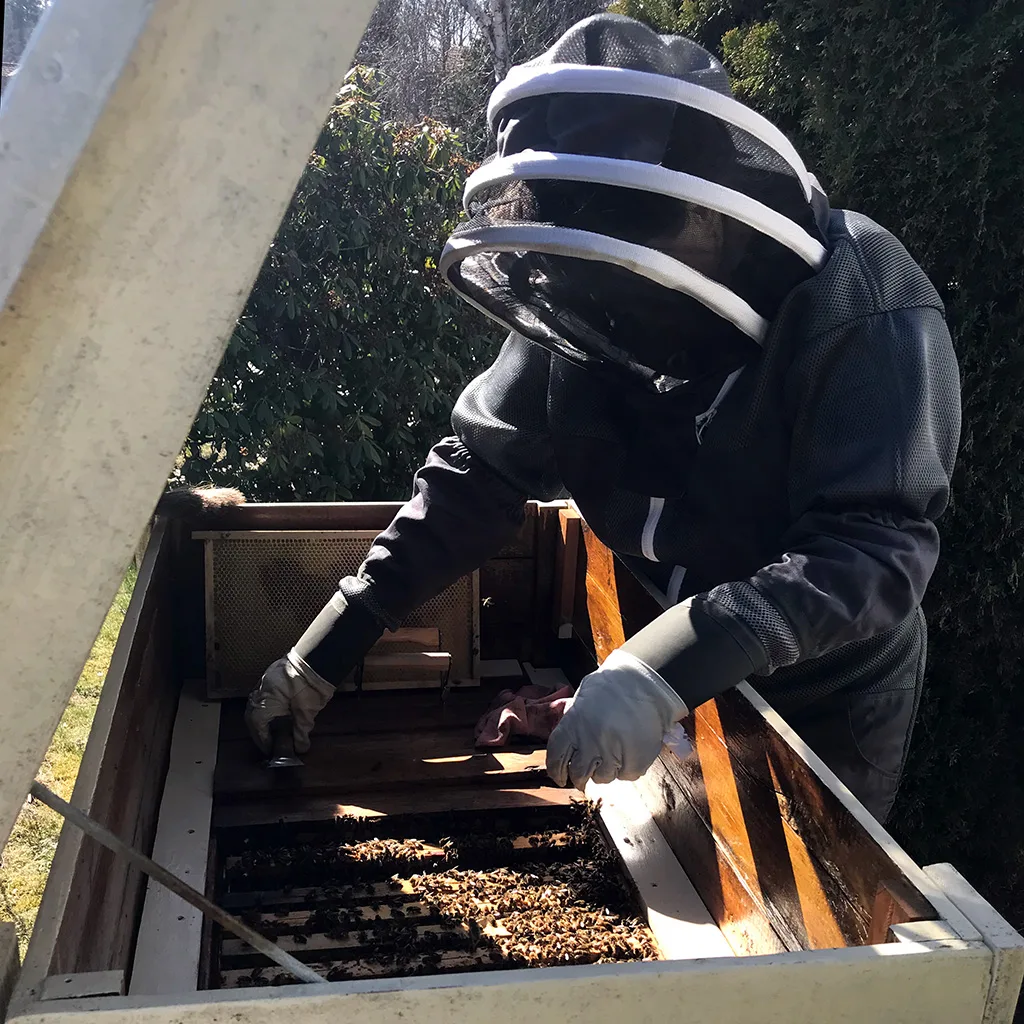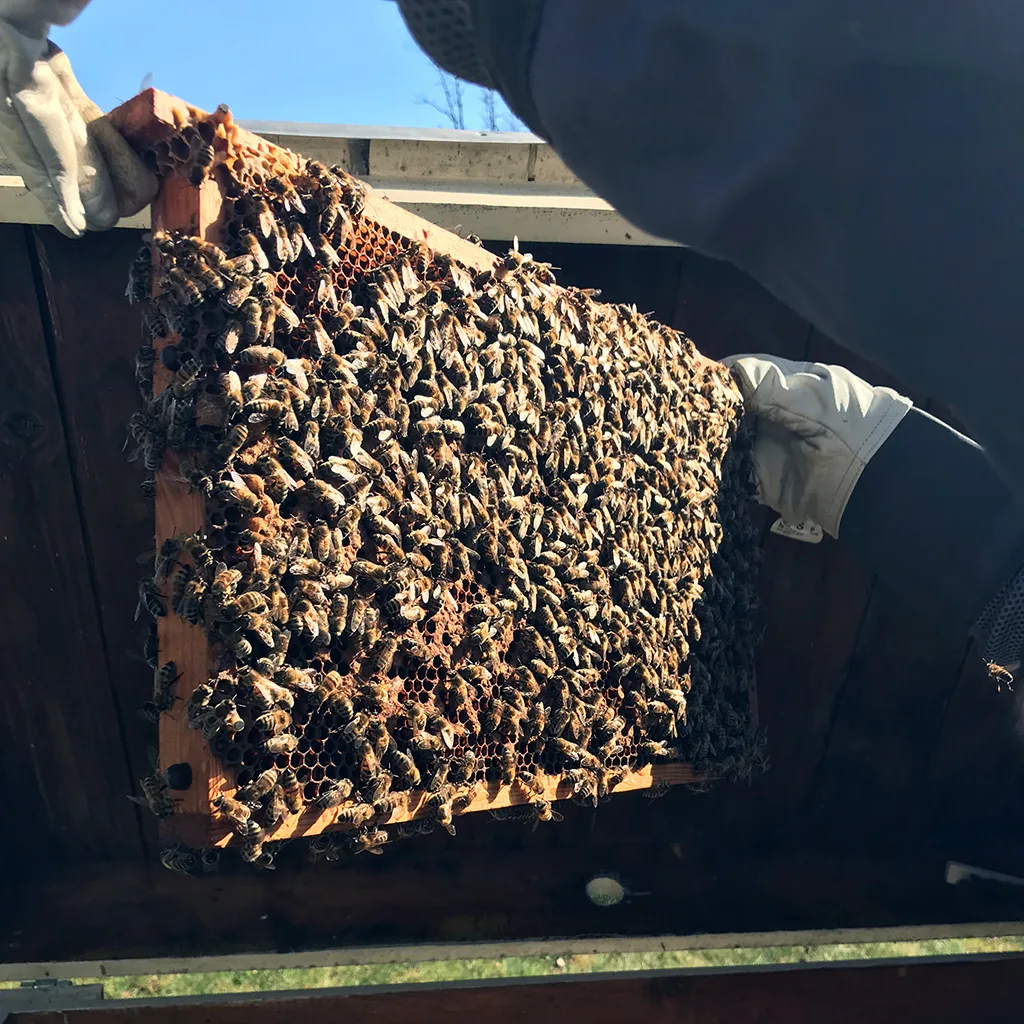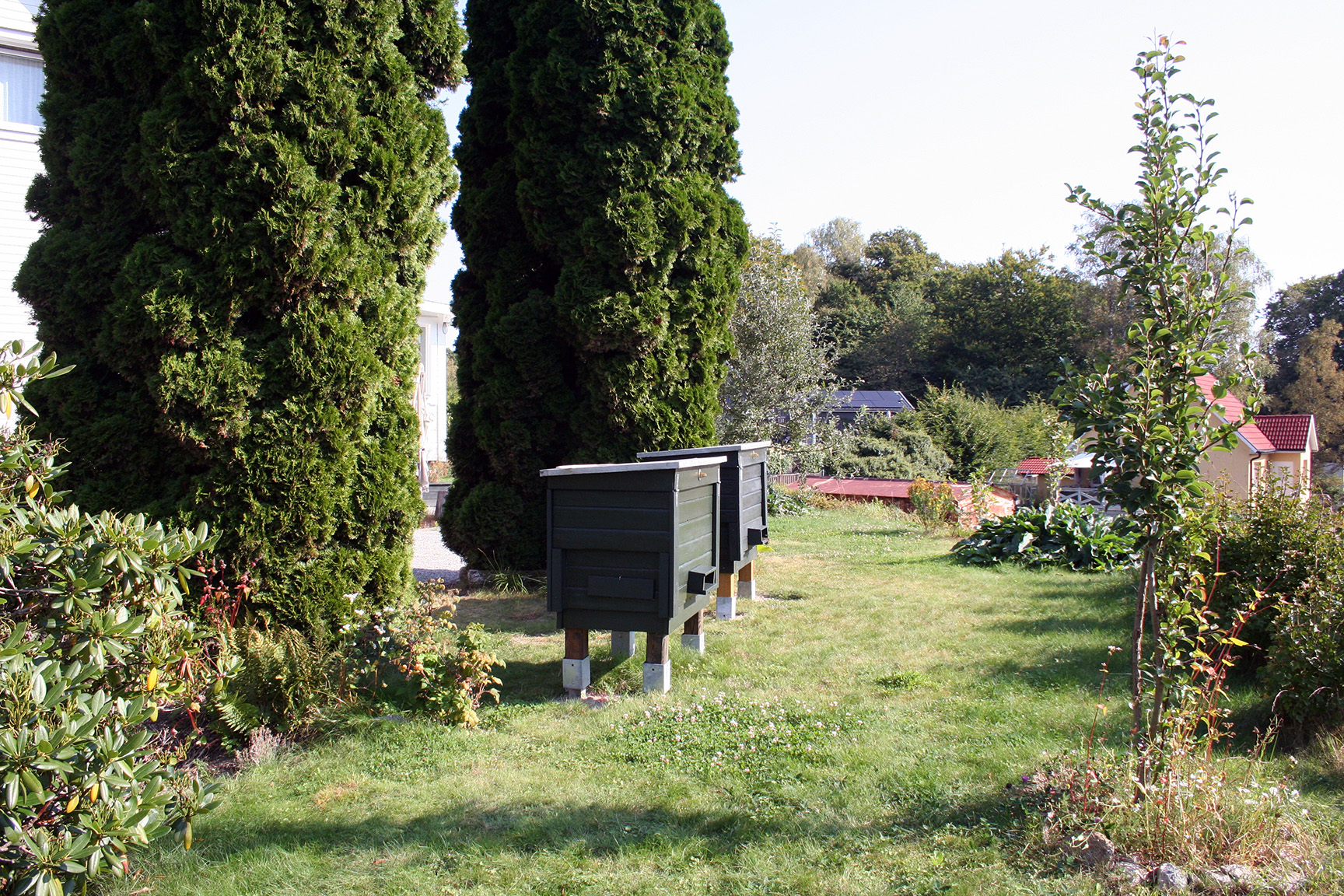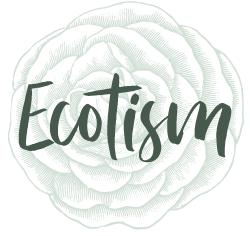Beekeeping: Caring for the Pollinators of Our Garden
Beekeeping, also known as apiculture, involves the care and management of a honeybee colony, typically housed in specially designed hives. We have chosen to revive a traditional wooden hive from southern Sweden called the “Smålandskupa.” This classic beehive offers a natural environment for our bees, which, like bumblebees and ants, rely on nectar and pollen.
Honeybees form fascinating, well-organized communities. In summer, a hive can buzz with up to 60,000 bees, each with a distinct role: the queen, worker bees, and drones. What makes bees truly remarkable is their unique form of communication. Through an intricate dance, they inform their fellow bees where nectar can be found and how far it is from the hive.
Why Beekeeping?
Bees play a vital role in nature as key pollinators of flowers, vegetables, and fruits. In our garden, their contribution is invaluable, especially in ensuring the fertility of our crops. Our passion for nature and sustainability drives us to better understand and protect these amazing insects. Additionally, we enjoy the privilege of harvesting our own honey and creating products like candles and soap from beeswax. Our approach is rooted in permaculture principles: we observe, harvest moderately, and aim to achieve a natural balance between humans and the environment.
As proud members of the Swedish Association of Beekeepers, we follow a humane and sustainable practice. We ensure our bees always have enough honey to get through the winter and avoid overharvesting. Rather than prioritizing overproduction, we focus on the bees’ well-being.
Over the past year, we expanded from one to two hives and colonies. Both “Smålandskupa” hives were carefully renovated with linseed oil paint to ensure they are well-protected and sustainable. We also created a hive split from our original colony, placing several frames of bees in a smaller hive. The worker bees successfully raised a new queen by feeding a regular larva with royal jelly, a nourishing and fascinating process. At the end of August, we transferred the new colony to a fully renovated Smålandskupa. Now, we hope that both colonies will remain healthy throughout the winter and thrive again in the spring.
Honey bee
Domain: Eukaryota
Kingdom: Animalia
Phylum: Arthropoda
Class: Insecta
Family: Apidae
Species: Apis mellifera



